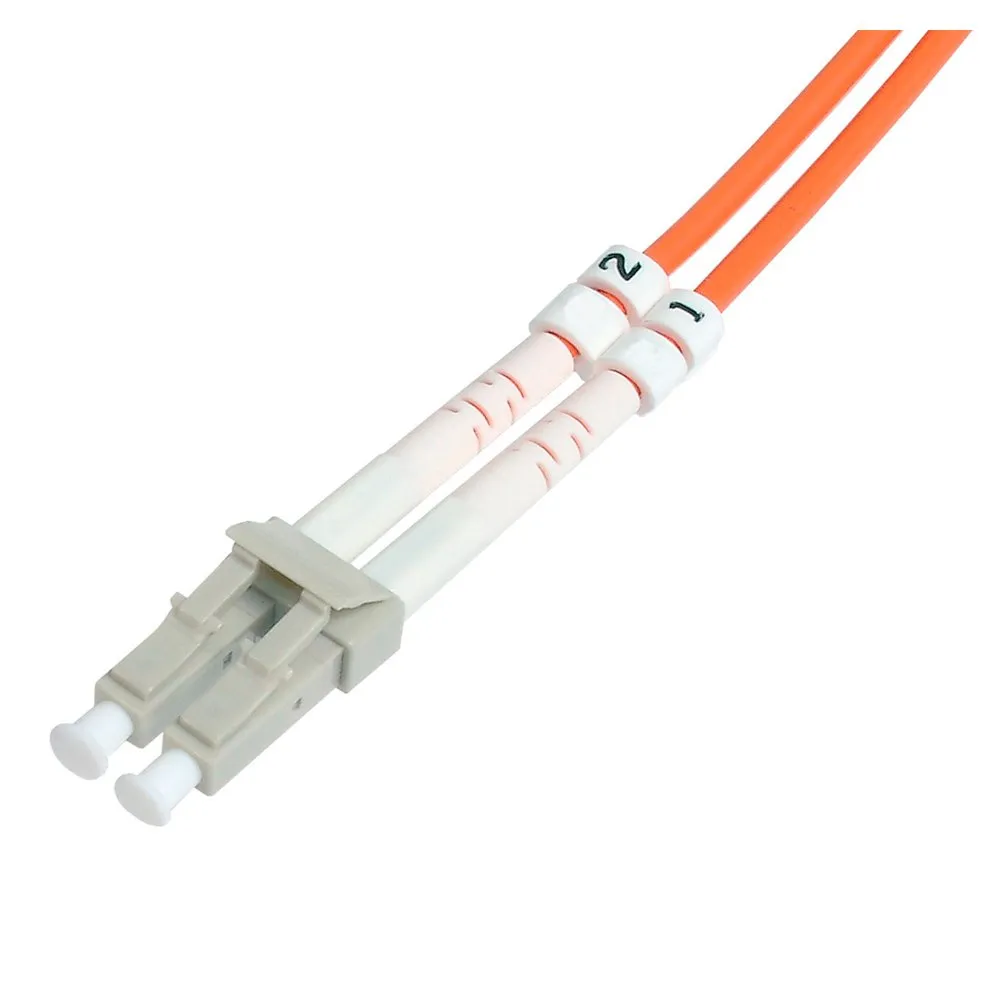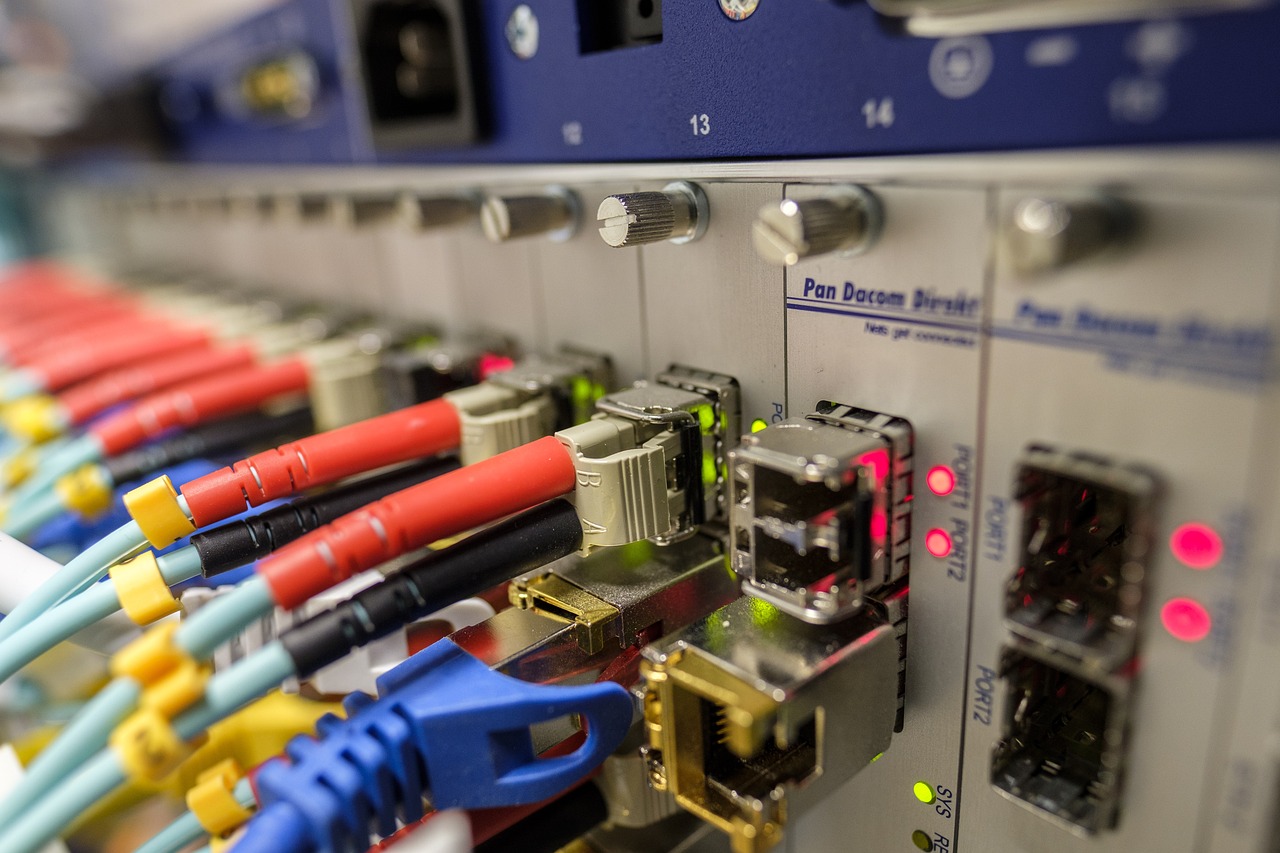4 Key Benefits of RoHS Compliant LC/UPC and SC/UPC Fiber Optical Patch Cables for Single Mode and Multimode Applications

Introduction to RoHS Compliant Fiber Optical Patch Cables
In the world of optical communication, Fiber Optical Patch Cables play a crucial role in ensuring seamless data transmission. But what sets certain cables apart is their compliance with RoHS regulations, which are designed to promote environmental safety and sustainability.
Understanding RoHS Compliance
RoHS, or Restriction of Hazardous Substances, is a set of regulations aimed at reducing the use of hazardous materials in electronic products. This includes the restriction of substances such as lead, mercury, and cadmium, among others. Ensuring that Fiber Optical Patch Cables comply with RoHS standards is essential for minimizing the environmental impact of optical communication systems.
The Role of Fiber Optical Patch Cables in Optical Communication
Fiber Optical Patch Cables serve as the vital link between various optical components within a network. They facilitate the seamless transmission of data signals across different devices, ensuring reliable connectivity and efficient data transfer. Whether it's within data centers, telecommunications networks, or enterprise environments, these cables form the backbone of modern optical communication infrastructure.
Benefit 1: Enhanced Environmental Safety
When it comes to the realm of environmental safety, the significance of RoHS compliance cannot be overstated. By adhering to these regulations, Fiber Optical Patch Cables contribute to a substantial reduction in hazardous substances, thereby playing a pivotal role in promoting healthier ecosystems.
The Importance of Being RoHS Compliant
The adherence to RoHS standards ensures the Fiber Optical Patch Cables are free from harmful materials such as lead, mercury, and cadmium. This reduction of hazardous substances not only safeguards the environment but also minimizes the potential health risks associated with exposure to these toxic elements. As a result, opting for RoHS-compliant cables aligns with sustainable and eco-friendly practices in optical communication systems.
Reduction of Hazardous Substances
RoHS compliant Fiber Optical Patch Cables significantly minimize the presence of hazardous materials, mitigating their adverse impact on both human health and the environment. This proactive approach underscores the commitment to sustainability and underscores the responsibility towards preserving natural ecosystems.
Promoting Healthier Ecosystems
By utilizing RoHS compliant Fiber Optical Patch Cables, organizations actively contribute to fostering healthier ecosystems. The absence of harmful substances in these cables prevents soil and water contamination, ultimately supporting biodiversity and ecological balance. This environmentally conscious choice sets a positive precedent for sustainable practices within the realm of optical communication.
LC/UPC and SC/UPC Connectors’ Contribution
The incorporation of LC/UPC and SC/UPC connectors further enhances environmental safety by ensuring seamless connectivity while upholding RoHS compliance standards. These connectors play a crucial role in maintaining signal integrity and data transmission efficiency, thereby reinforcing the commitment to environmental sustainability within optical communication networks.
Benefit 2: Superior Performance in Single Mode Applications
In the realm of optical communication, the Single mode Fiber Optical Patch Cable stands out as a key component, offering unparalleled performance in specific applications.
The Significance of Single Mode Fiber Optical Patch Cable
The Single mode Fiber Optical Patch Cable is engineered to facilitate high-speed data transmission, making it an ideal choice for applications requiring swift and efficient data transfer. Its design ensures low signal loss over extended distances, providing reliable connectivity for long-haul optical communication networks.
High-Speed Data Transmission
The Single mode Fiber Optical Patch Cable excels in delivering high-speed data transmission, catering to the demands of modern communication systems. Its ability to swiftly transmit large volumes of data sets it apart as a preferred solution for high-bandwidth applications.
Low Signal Loss Over Long Distances
One of the defining features of the Single mode Fiber Optical Patch Cable is its capability to maintain low signal loss even across extensive distances. This characteristic makes it an indispensable asset in scenarios where seamless data transmission over long-haul connections is imperative.
LC/UPC and SC/UPC’s Role in Single Mode Performance
The integration of LC/UPC and SC/UPC connectors plays a pivotal role in enhancing the performance of Single mode Fiber Optical Patch Cables. These connectors ensure seamless connectivity and signal integrity, optimizing the overall efficiency of single mode fiber optic networks.
LC/UPC connectors
SC/UPC connectors
Single mode fiber optic networks
Benefit 3: Optimal Functionality in Multimode Settings
In the realm of optical communication, Multimode Fiber Optical Patch Cables offer distinct advantages that cater to specific network requirements, particularly in scenarios where high data rates over short distances are essential.
The Advantages of Multimode Fiber Optical Patch Cable
Multimode Fiber Optical Patch Cables are designed to support high data rates over short distances, making them an ideal choice for small to medium-sized networks. Their cost-effectiveness and versatility make them a preferred solution for various optical communication applications, especially within environments where efficient data transmission over limited distances is paramount.
Supporting High Data Rates Over Short Distances
Cost-Effectiveness for Small to Medium-Sized Networks
How LC/UPC and SC/UPC Enhance Multimode Applications
The integration of LC/UPC and SC/UPC connectors plays a crucial role in optimizing the functionality of Multimode Fiber Optical Patch Cables. These connectors ensure seamless connectivity and signal integrity within multimode settings, enhancing the overall efficiency of optical communication networks.
Benefit 4: Versatility and Durability
In the realm of optical communication, the Fiber Optical Patch Cable stands out for its exceptional versatility and durability, making it a preferred choice for a wide range of applications.
Wide Range of Applications
The Fiber Optical Patch Cable offers unparalleled versatility, catering to diverse settings ranging from expansive data centers to compact home networks. Its compatibility with various optical communication equipment further enhances its adaptability, ensuring seamless integration within different network infrastructures.
From Data Centers to Home Networks
Compatibility with Various Optical Communication Equipment
Built to Last
One of the defining features of the Fiber Optical Patch Cable is its robust construction, designed to withstand rigorous environmental conditions while maintaining optimal performance.
Thick Protective Layer for Enhanced Durability
The inclusion of a thick protective layer ensures that the Fiber Optical Patch Cable remains resilient in demanding operational environments. This protective coating shields the cable from external factors such as moisture, dust, and physical stress, thereby prolonging its lifespan and preserving signal integrity.
Flexible Interconnection Options
The Fiber Optical Patch Cable offers flexible interconnection options, allowing for seamless integration with a variety of optical communication devices. This adaptability enables swift deployment and reconfiguration within network setups, enhancing overall operational efficiency.
Conclusion: Reflecting on the Advantages
Summarizing the Key Benefits
In summary, the utilization of Fiber Optical Patch Cables brings forth a multitude of advantages across optical communication networks. From enhanced environmental safety to superior performance in both single mode and multimode applications, these cables play a pivotal role in ensuring seamless data transmission while upholding RoHS compliance standards. The incorporation of LC/UPC and SC/UPC connectors further enhances their functionality, contributing to the overall efficiency of optical communication systems.
The Future of Fiber Optical Communication with RoHS Compliant Cables
As technology continues to advance, the demand for sustainable and high-performing optical communication solutions is poised to increase. With RoHS compliant Fiber Optical Patch Cables at the forefront, the future holds promising prospects for environmentally conscious and efficient data transmission practices. These cables are set to play an integral role in shaping the next generation of optical communication infrastructure, offering reliability, sustainability, and optimal performance.
See Also
Exploring the Top 12-Core Singlemode MPO SC/APC Fiber Trunk
Resolving Fiber Link Issues with 2.0×5.0mm SC UPC Field Assembly Connectors
Contrasting MTP and LC/UPC Optical Cables for 100G Networks
4 Convincing Advantages of Optical Cable in FTTR for Visible Room Fiber
5 LC-LC Duplex 9/125µm Single Mode Bend-Resistant Patch Cable Choices


